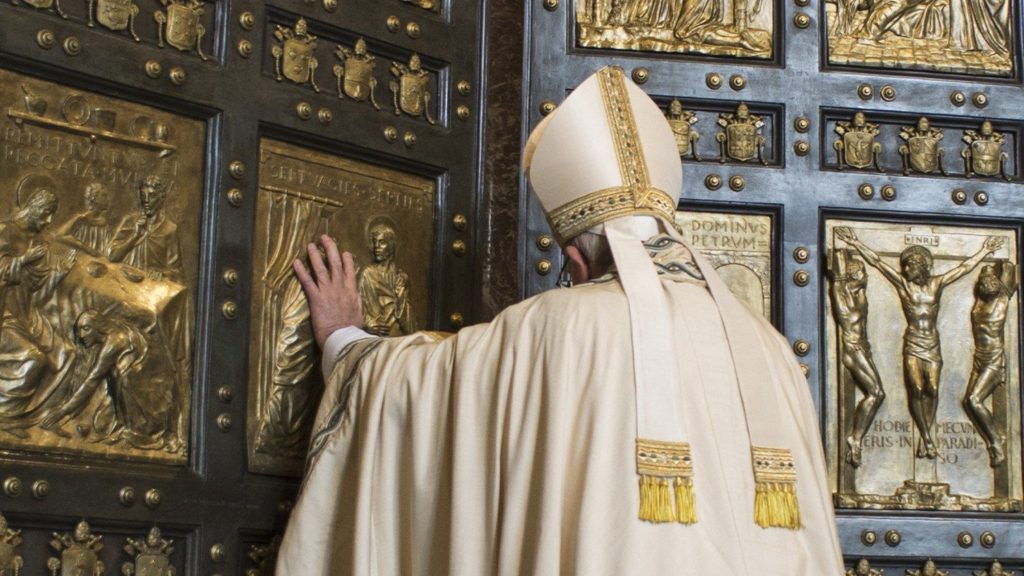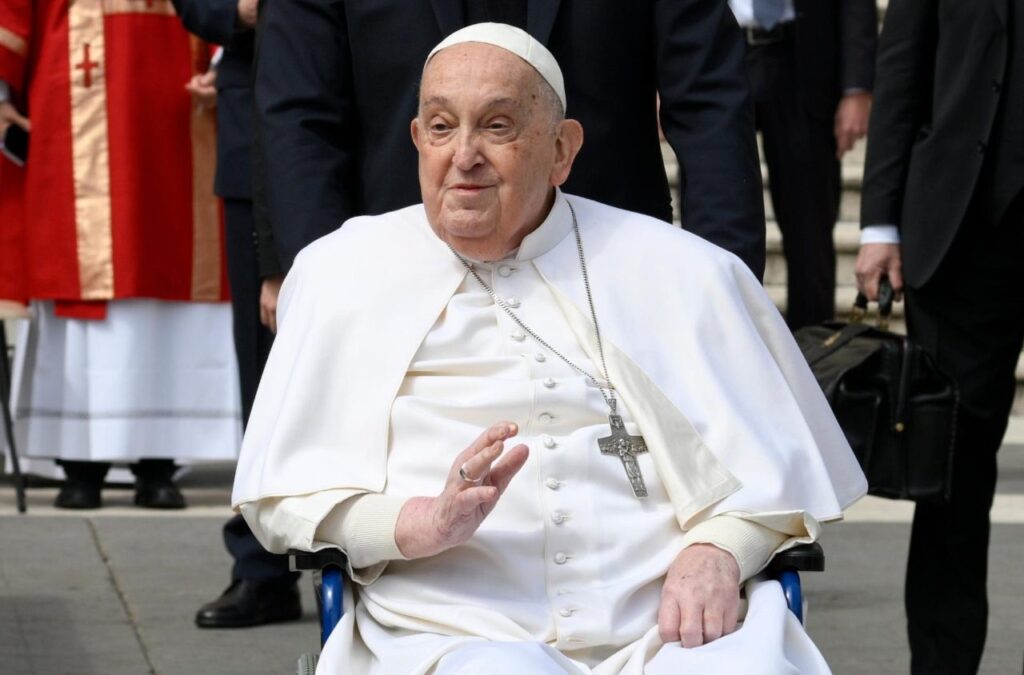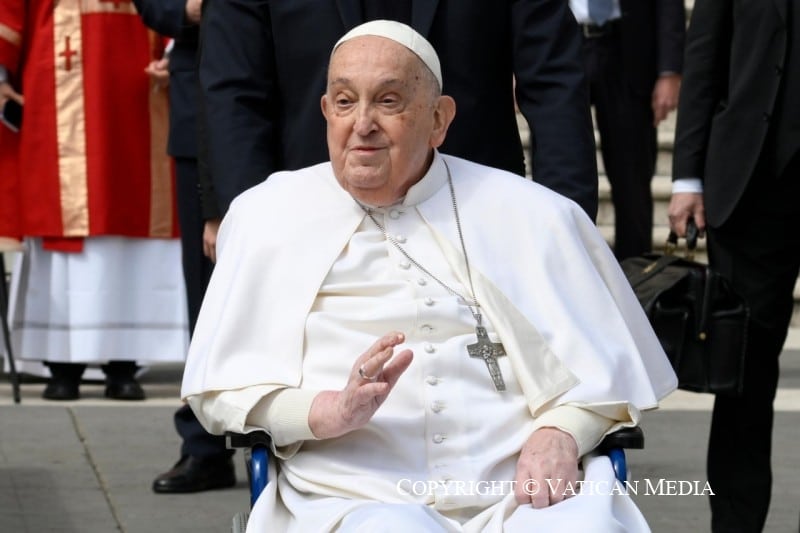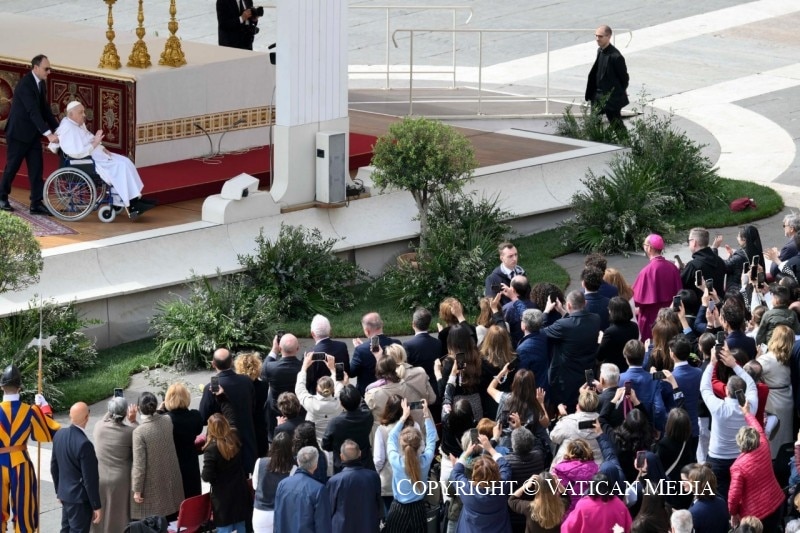Pope Francis Proclaims Holy Year for 2025
It Will Be the Second Jubilee of the Holy Father’s Pontificate

Pope Francis has called a Holy Year for 2025. He has “entrusted the coordination, by the Holy See, of the preparation for the 2025 Holy Year, to the Pontifical Council for Promoting the New Evangelization,” informed a press release of the Holy See on December 26, 2021.
In this connection, Monsignor Rino Fisichella, President of the said Council, met with Superiors of the Secretariat of State, of the Administration of the Patrimony of the Apostolic See, and of the Secretariat for the Economy, “ reads the text.
According to “Vatican News,” it is the second Jubilee of Pope Francis’ pontificate, the first being the Holy Year of Mercy, proclaimed through the Bull “Misericordiae Vultus,” and carried out from November 29, 2015, to November 20, 2016. In that case, also, the coordination was entrusted to Monsignor Rino Fisichella.
The Jubilee offers the faithful the possibility of gaining a Plenary Indulgence for themselves or for the deceased. It’s a Year of reconciliation and conversion, of solidarity and commitment to justice at the service of God and of brethren.
In the Roman Catholic tradition, a Holy Year, or Jubilee is a great religious event. It is a year of forgiveness of sins and also the punishment due to sin, it is a year of reconciliation between adversaries, of conversion and receiving the Sacrament of Reconciliation, and consequently of solidarity, hope, justice, commitment to serve God with joy and in peace with our brothers and sisters. A Jubilee year is above all the year of Christ, who brings life and grace to humanity.
The origin of the Christian Jubilee goes back to Bible times. The Law of Moses prescribed a special year for the Jewish people: “You shall hallow the fiftieth year and proclaim the liberty throughout the land, to all its inhabitants; it shall be a jubilee for you when each of you shall return to his property and each of you shall return to his family. This fiftieth year is to be a jubilee year for you: you will not sow, you will not harvest the un-gathered corn, you will not gather the untrimmed vine. The jubilee is to be a holy thing to you, you will eat what comes from the fields.”(The Book of Leviticus 25, 10-14) The trumpet with which this particular year was announced was a goat’s horn called Yobel in Hebrew, and the origin of the word jubilee. The celebration of this year also included the restitution of land to the original owners, the remission of debts, the liberation of slaves, and the land was left fallow. In the New Testament, Jesus presents himself as the One who brings the old Jubilee to completion, because he has come to “preach the year of the Lord’s favor” (Isaiah 61: 1-2).
It is interesting to note that in almost every country, time is counted as before and after Christ’s coming into the world, although today few people may realize the reasons for this calculation. For Christians then, the Jubilee of the year 2000 is especially important because it will be a celebration of the 2000th anniversary of the birth of Christ (apart from differences of the exact chronological count.) What is more, it will be the first Holy Year which marks the turn of a millennium, since the first Jubilee was proclaimed by Pope Boniface VIII in 1300. For Christians then, the Jubilee of the Year 2000 should be a great prayer of praise and thanksgiving to God for the gift of the Incarnation of His Son and the Redemption He brings.
The Jubilee is called Holy Year, not only because its begins, is marked, and ends with solemn holy acts, but also because its purpose is to encourage holiness of life. It was actually convoked to strengthen faith, encourage works of charity and brotherly communion within the Church and in society, and to call Christians to be more sincere and coherent in their faith in Christ, the only Saviour.
A Jubilee can be “ordinary” if it falls after the set period of years, and “extraordinary” if it is proclaimed for some outstanding event. There have been twenty-five “ordinary” Holy Years so far: the Year 2000 will be the 26th. The custom of calling “extraordinary” Jubilees began in the 16th century and they can vary in length from a few days to a year. There have been two extraordinary jubilees in this century: 1933 proclaimed by Pope Pius XI to mark the 1900th anniversary of Redemption and 1983 proclaimed by Pope John Paul II to mark 1950 years since the Redemption carried out by Christ through his Death and Resurrection in the year 33. In 1987 Pope John Paul II also proclaimed a Marian Year.
Related

Pope Francis in active recovery: preparing the meditations for the Stations of the Cross while delegating the liturgies of the Triduum
Exaudi Staff
16 April, 2025
2 min

Francis Promotes Spiritual and Pastoral Renewal in Vatican Diplomacy
Exaudi Staff
16 April, 2025
8 min

Palm Sunday: “Father, into your hands I commend my spirit”
Exaudi Staff
13 April, 2025
2 min

“Jesus’ passion becomes compassion when we reach out to those who can no longer bear it”
Exaudi Staff
13 April, 2025
5 min
 (EN)
(EN)
 (ES)
(ES)
 (IT)
(IT)

